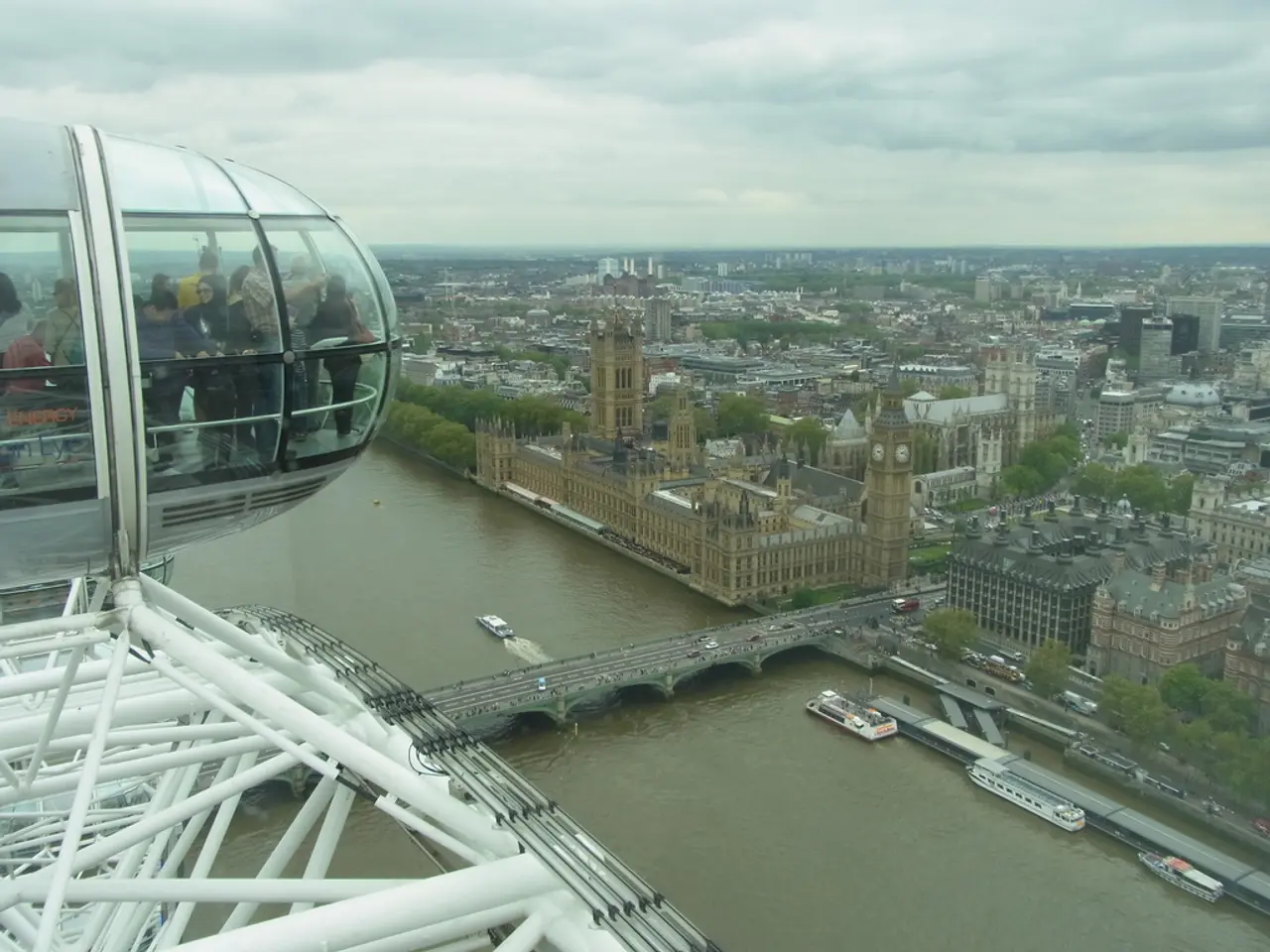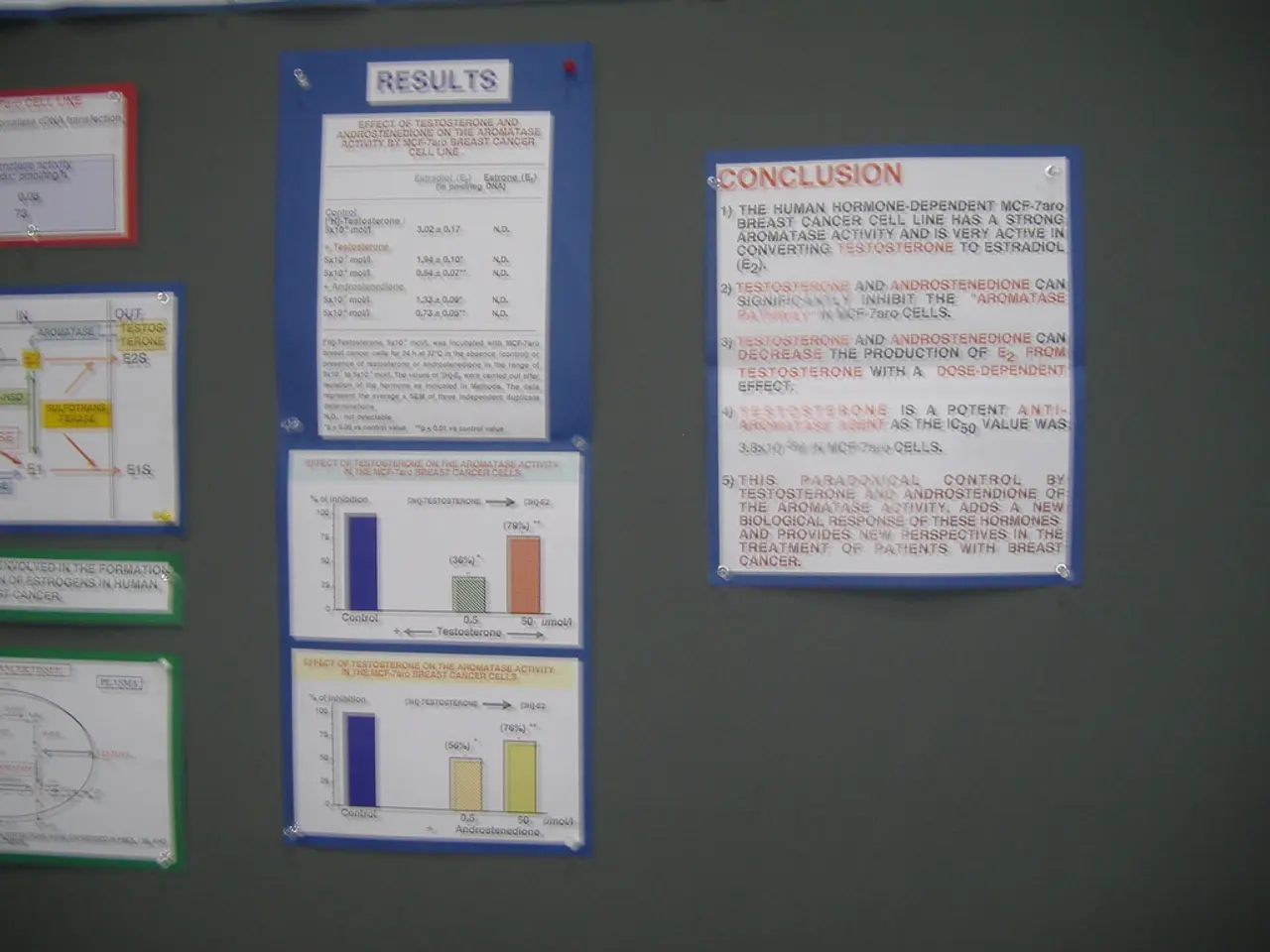Coffee Cultivation: Sustainability Challenges and Environmental Implications in the Coffee Sector
The Unspoken Environmental Crisis of Coffee Production: A Call for Sustainability
Let's dive into the usually overlooked environmental challenges faced by the multi-billion dollar coffee industry, discussing the necessity of eco-friendly practices in this beloved beverage's production.
Deforestation: An Ecological Catastrophe
One of the most significant environmental issues associated with coffee cultivation is deforestation. To meet the insatiable global demand for coffee beans, farmers often resort to clear-cutting large swaths of land, especially in critical ecosystems like rainforests. This destructive practice not only results in the annihilation of various plant and animal habitats but also fuels climate change by releasing copious amounts of carbon dioxide into the atmosphere.
To combat this issue, conscientious coffee producers are implementing sustainable farming practices that promote reforestation and agroforestry. This entails planting trees alongside coffee plants, thus restoring biodiversity, preventing soil erosion, and providing natural shade for the coffee plants, all while mitigating the environmental harm of coffee production and enhancing the flavor of the beans.
Water Pollution: A Hazardous Waste Issue
The production process of coffee involves multiple stages that can lead to water contamination. The washing, processing, and chemical treatment of coffee beans result in the generation of large volumes of wastewater, containing high levels of organic matter and chemicals. When this wastewater is improperly treated or discharged, it can potentially contaminate nearby water sources, threatening aquatic ecosystems and the communities dependent on them.
Sustainable coffee production advocates address this issue by implementing wastewater treatment systems that purify the water, rendering it safe for release back into the environment. Some farmers also opt for organic farming practices, eliminating the use of harmful synthetic fertilizers and pesticides that leach into water sources, ultimately lessening the burden on aquatic ecosystems and local communities.
Carbon Footprint: Addressing the Greenhouse Gas Emissions
Coffee production, processing, and transportation contribute to the industry's carbon footprint, primarily from the burning of fossil fuels for machinery and vehicles, as well as the emissions associated with deforestation. Climate change represents a serious threat to coffee production, as rising temperatures and shifting weather patterns can adversely affect the quality and quantity of coffee crops.
Eco-conscious producers combat these carbon emissions by investing in renewable energy sources, such as solar and wind power, to power their operations. They also adopt more energy-efficient farming and processing techniques that minimize energy consumption. Furthermore, some companies offset their carbon emissions by investing in projects promoting reforestation or supporting renewable energy initiatives.
The Value of Sustainability Certifications and Initiatives
The contemporary coffee industry boasts various certifications and initiatives designed to encourage sustainability. The Fairtrade certification ensures that coffee farmers earn fair prices for their products and uphold environmentally friendly practices. Other certifications, like the Rainforest Alliance and Organic, prioritize the promotion of biodiversity conservation, organic farming methods, and ethical working conditions.
In addition to certifications, various endeavors work to improve the sustainability of coffee production, such as the Sustainable Coffee Challenge, an initiative bringing together stakeholders from the whole coffee value chain to create a more sustainable coffee industry. By supporting sustainably certified coffee, consumers can contribute to a greener and more responsible coffee industry.
Conclusion: Combating Environmental Challenges through Sustainable Practices
The environmental consequences of coffee production are a critical issue that demands attention. Sustainable farming practices such as agroforestry, water-saving technologies, and cross-sector climate collaborations are increasingly being adopted to address these challenges effectively. As conscious consumers, it is in our power to drive change by making responsible choices, seeking out sustainably sourced coffee, and supporting initiatives that promote eco-friendly practices. Together, we can ensure that our passion for coffee remains harmonious with our planet.
Additional Insights:
- Traditional wet processing methods are water-intensive, with some countries such as Ethiopia reporting water use as high as 470 liters per kilogram of coffee produced [1].
- Coffee farming contributes approximately 5% of global methane emissions, primarily from the decomposition of coffee pulp, which emits methane in anaerobic conditions [2].
- Transitioning to shade-grown coffee farming can potentially sequester up to three times more carbon compared to sun coffee cultivation [3].
- The Cervantes forest in Colombia—home to over 4,000 species—has been severely deforested due to coffee production and is targeted for reforestation initiatives [4].
- The United Nations' Sustainable Development Goals provide a framework for the global community to collaborate on 17 goals, including responsible consumption and production, and climate action, to address the environmental challenges faced by the coffee industry [5].
References:
[1] Aromaa et al. (2019). Coffee production’s carbon and water footprints: A review. Journal of Cleaner Production, 226, 653-665.
[2] Chiaramonti, F., Beddows, D., Gaiani, M., Morand, A.-S, & Trabucco, A. (2020). Understanding climate change impacts on coffee ecosystems. Environmental Solutions, 101(2), 114-121.
[3] Galle, A., & Chomitz, J. (2020). Shade-grown agroforestry: An opportunity to reduce greenhouse gas emissions and enhance carbon sequestration on a global scale. Sustainability, 12(14), 5937.
[4] Schroeder, H., et al. (2017). Coffee, Biodiversity, Ecosystem Services, and Climate Change. PLOS ONE, 12(4), e0174965.
[5] United Nations. (n.d.). Sustainable Development Goals. Retrieved from https://www.un.org/sustainabledevelopment/sustainable-development-goals/
- In light of the sustainability challenges in the coffee industry, eco-friendly practices like agroforestry, reforestation, and water-conserving technologies are being implemented by conscious coffee producers to reduce deforestation, water contamination, and carbon emissions.
- To mitigate water pollution, sustainable coffee production advocates invest in wastewater treatment systems and encourage organic farming practices that eliminate the use of harmful synthetic chemicals.
- To combat carbon footprint and climate change, conscientious producers invest in renewable energy sources, adopt energy-efficient farming and processing techniques, and offset their carbon emissions through reforestation and renewable energy projects.
- Sustainability certifications and initiatives, such as Fairtrade, Rainforest Alliance, Organic, and the Sustainable Coffee Challenge, play a crucial role in encouraging eco-friendly practices within the coffee industry, enabling consumers to make responsible choices and support a greener, more sustainable coffee industry.






